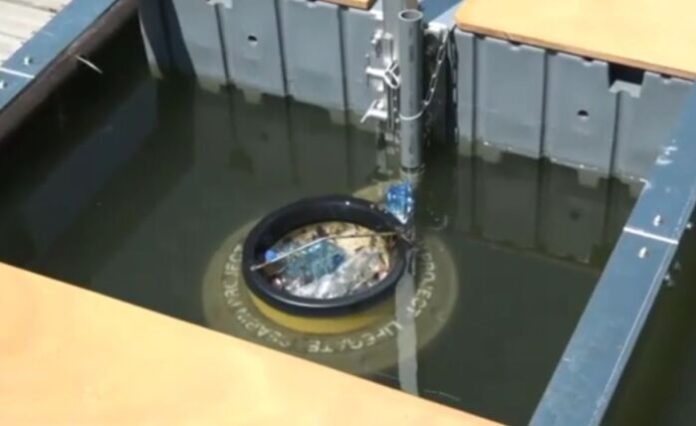
It is a kind of bin 1.5 meters high, of which only the mouth can be seen. The rest is submerged underwater in the Arno river, in Florence, where it attracts plastics and waste that floats and, thanks to the work of a pump, captures them by expelling the filtered water. It is called Seabin and is a simple but useful device that collects over 500 kilograms of plastic waste in one year, including microplastics and microfibers.
This bin is installed on the Arno river at the Rowing Club in Florence, a stone’s throw from Ponte Vecchio thanks to the collaboration between Coop and LifeGate.
The project involves the installation in various parts of Italy of 25 devices in lakes, seas and rivers: in Pescara, Genoa, Milan, in Lake Maggiore, in Castigliore della Pescaia, in Livorno, Brindisi, Tieste, Rome and Ravenna in a Tour of Italy which will end in the summer of 2021. “A symbolic and at the same time concrete gesture that testifies to our commitment to the environment,” explains Maura Latini, CEO of Coop Italia.
The Seabin is an effective and efficient solution, a real basket that, floating on the surface of the water, captures the waste it encounters, from the largest to the microplastics, while a small pump expels the filtered water. It is able to work 24 hours a day, seven days a week, pumps up to 25,000 liters of water an hour and needs emptying and cleaning operations.
Seabin is a basket that must be in a sheltered area, for example in the bend of a river or in a port, or sheltered from a marina to function. Consume one euro of electricity per day. “Every device needs to be adapted to be installed, the Florence one is for example anchored to a small floating raft – explains Simone Molteni, LifeGate’s scientific director – each basket with the pump and the installation plan costs around 15-20 thousand euros. All inclusive “.
Surely Seabin alone is not able to solve the problem of plastic pollution but it is a valid help to start tackling the problem.
A single data is sufficient to clarify the need for similar cleaning interventions in fresh and salt water; ISPRA (Higher Institute for Environmental Protection and Research) stated in its latest report that in the Mediterranean alone, nearly 50,000 specimens of fish of 116 different species ingested plastic. And referring in particular to the state of health of the Arno, a recent note from the Arpat Toscana cites the calculations made by the Dutch Ocean Clean Up who speaks of “18,700 kilos of waste transported by the Arno every year” thus making it appear mainly due to some sections (more towards the mouth than upstream) among the most critical rivers in Italy.
The councilor of the Tuscany Region Vittorio Bugli, creator of the Clean Archipelago and then, last year of clean beaches with the abolition of disposable dishes and glasses, spoke at the presentation of the first of the 25 plastic-eating baskets: “The problem that today we must face it is not only to think of an economy that does not pollute, but to a regenerative economy of environmental damage committed”.



































